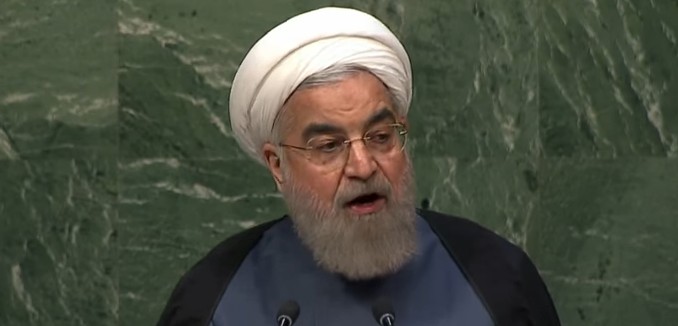After reports emerged Wednesday that the United States will impose new sanctions on Iran after the Islamic Republic tested ballistic missiles in violation of United Nations Security Council resolutions, Iranian President Hassan Rouhani announced Thursday that he is ordering his defense ministry to accelerate the development of his nation’s missile program.
Iran’s semi-official PressTV news reported that in his decree to Defense Minister Hossein Dehqan, “Rouhani ordered an acceleration in Iran’s program for production of ‘various types of missile’ needed to improve the country’s defense capabilities.”
Rouhani, in his decree to Dehqan, called the purported plan by the White House a measure in line with hostile US policies to “illegally interfere in the Islamic Republic of Iran’s programs for boosting the defense power.” …
The Iranian president also warned that in case the US repeats such “wrong and interventionist” measures, the Iranian Defense Ministry must develop a new plan for expanding the country’s missile capabilities.
Rouhani said that Iran’s missile power, which he described as a means to protect the country’s sovereignty and a major deterrence against terrorism in the Middle East and the world, has never been up for negotiations, including in the nuclear talks with the P5+1 group – the five permanent members of the UN Security Council plus Germany – which resulted in the JCPOA in Austria on July 14.
In response to new US #sanctions planned against Iran's ballistic missile program, have ordered the Defense Minister to expedite the program
— Hassan Rouhani (@HassanRouhani) December 31, 2015
Rouhani said that the development of ballistic missiles was “conventional and important” to his nation’s defense. He also claimed that Iran’s missile program is not covered by the nuclear deal. In a July Senate hearing, Secretary of State John Kerry said that Iran had agreed that non-nuclear sanctions imposed by the United States would not violate the terms of the nuclear deal.
Earlier this month, a United Nations panel found that Iran’s October launch of a ballistic missile violated United Nations Security Council Resolution 1929, which prohibits Iran from undertaking “any activity related to ballistic missiles capable of delivering nuclear weapons, including launches using ballistic missile technology, and that States shall take all necessary measures to prevent the transfer of technology or technical assistance to Iran related to such activities.” Iran subsequently tested another ballistic missile in November.
The first launch prompted a group of eleven Democratic senators to write a letter to Kerry expressing their concern over Iran’s ballistic missile program. The administration’s slow response to the Iranian provocation prompted a pair of Republican senators to write to President Barack Obama earlier this month, emphasizing that the advanced missiles posed a threat to the United States and its allies.
When Iran scheduled ballistic missile tests a month after the nuclear deal was announced, Iran’s semi-official Fars news agency claimed that such tests would reinforce Iran’s interpretation of UN Security Council Resolution 2231, the resolution that formalizes parts of the nuclear deal. That resolution also calls for Iran to refrain from testing ballistic missiles, but Iranian President Hassan Rouhani said that his country was unwilling to “abide by any resolution” that would limit its capacity to develop or acquire the weapons it deemed necessary.
[Photo: PBS NewsHour / YouTube ]




